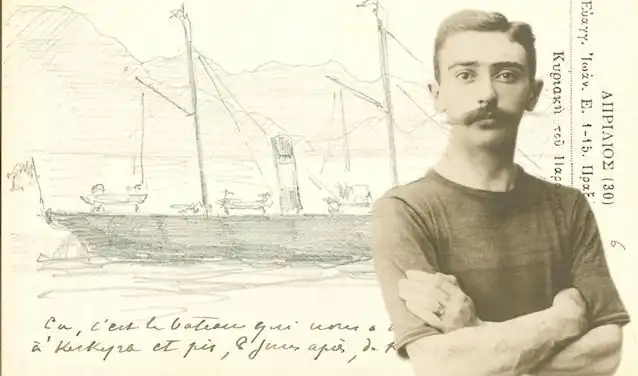Home>The founder of the Olympic Games studied at Sciences Po
03.08.2021
The founder of the Olympic Games studied at Sciences Po

This article was originally published in February 2018.
Pierre de Coubertin, initiator of the modern Olympic movement and the Olympic Games in Athens in 1896, founder of the International Olympic Committee, attended Sciences Po assiduously from 1884 to 1886. Coubertin played an important role in the emergence and development of athletics in France in the early twentieth century.
While studying law at the Catholic University of Paris, Pierre de Coubertin aspired toward a diplomatic and political career. He found exactly the teaching he was looking for at the École Libre des Sciences Politiques, which would later become Sciences Po. “All that can perfect an intellectual education,” he wrote, “all that can refine and sharpen the mind, expand and strengthen knowledge, and nurture more precise, sound thinking; it is all taught there.”*
“Thoroughly enlightened”
Coubertin avidly attended the lectures of the École Libre’s great professors in finance, economics, and law. “No university has ever provided its students with such a select group of talented minds to direct their intellectual development,” he wrote. “I would come out of these lectures thoroughly enlightened.” He felt in tune with the École Libre; it was based on the model of English public schools and residential universities he admired. Here he acquired a historical and diplomatic education from which his internationalism drew its roots. Here too he adopted the “Republican gentlemen” ethos that the school sought to instil in the future leaders of the New France.
A gratified student, Coubertin became one of the first to promote Sciences Po across the Atlantic. In 1897, in an American magazine, he published a fully-fledged declaration of love for his school, which “had something of the scientific rigour and sacred atmosphere characteristic of the gymnasiums of ancient Athens”.** He loyally returned to rue Saint-Guillaume to lecture on the history of the United States in 1896 and 1897.
Adoption of sport
From 1887 onwards, Coubertin devoted himself to “burnishing” the youth of Paris high schools and the French elite. The École Libre drew inspiration from the educational reform through sport that he promoted—a reform based on ideological premises which were to give rise to controversy. Sciences Po, no doubt due to its urban location, was not “naturally” sporty. The school’s adoption of sport took place in the 1930s when, taking advantage of construction of the lecture theatre wing, the institution equipped itself with a gym at garden level (now the cafeteria). The Sports Association was founded in 1931.
In the early 1930s, the leaders of the École Libre were particularly open to this idea of physical education. Sport as Coubertin described it— “a science concerned with the making of men,”*** strengthening characters and inculcating a “culture of the will” —fit with the spirit of the time. During the Occupation, the 1941 educational reform imposed compulsory physical education in schools.
The legacies of Coubertism
Today, the Sports Association is thriving. It sends football, volleyball, handball, tennis, swimming, horseback riding and track teams to compete successfully at all the interuniversity competitions. This vitality is a distant legacy of the conversion to sports that owes so much to Coubertin.
Another legacy of Coubertism at Sciences Po is that in 2014, Geoffroy de Navacelle, representing Coubertin's family, entrusted the papers of the young Pierre to the Contemporary History Archives at the Sciences Po Centre for History, to be preserved and used to best advantage. The collection includes his travel diaries illustrated with sketches (see illustration above) and his War Diary (1914-18), as well as his family archives, in which the memory and customs of “Coubertism��” and the Olympic movement are recorded. Thanks to these archives, historians will be able to write an academically researched history of this controversial figure.
* Pierre de Coubertin, “The revival of French Universities, ” American Monthly Review of Reviews, vol. XVI, July 1887, pp. 52-56.
** Idem
*** Pierre de Coubertin, “L’éducation athlétique. Conférence faite le 26 janvier 1998 à l’Association française pour l’avancement des Sciences”, AFAS, proceedings of the 18th session, Paris, Masson, pp. 15-25, special print edition, Paris, imp. Chaix, 1889, 23 pages.
Find out more
- Culture, sport and associations at Sciences Po
- The Sciences Po Centre for History and its archives